Umswai Valley – A Rural Eco-tourism Destination in Assam
As we approached close to Umswai Valley in West Karbi Anglong, the landscape transitioned from broad flatland to serpentine curves of the hills. The clouds inhabiting the sky rolled away from each other bringing the cobalt blue hues of sky in clarity. The nip in the air convinced of arriving in a place less connected to the chaos of city as the roads opened through ripe paddy fields. With the diminishing internet signals, the indigenous lore and eccentric traditional anecdotes brewed at every corner of the remote villages perched atop Umswai Valley.
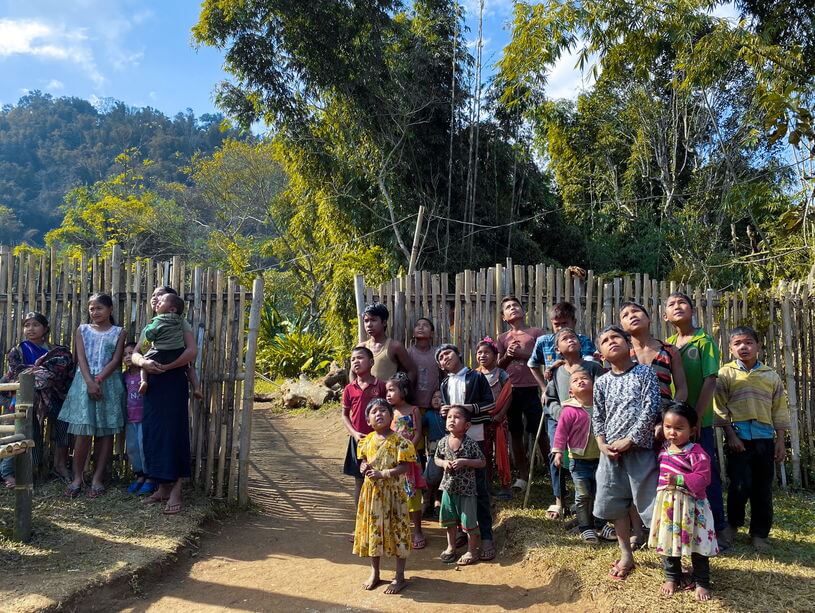
Table of Contents
An Emerging Eco-Tourism Destination for Rural Experience
After a long tiring chasing deadlines and working neck to neck kind of absorption in the cities, our inner self gets obnoxious with the monotony constantly haunting our thoughts. Rural experiences are becoming increasingly popular that adds a dash of cultural perspective to our mind and help in maintaining the integrity of ecotourism, adding livelihood to people of remote villages. Umswai Valley in West Karbi Anglong is an emerging ecotourism destination that explicitly sits with the definition of experiential rural tourism.
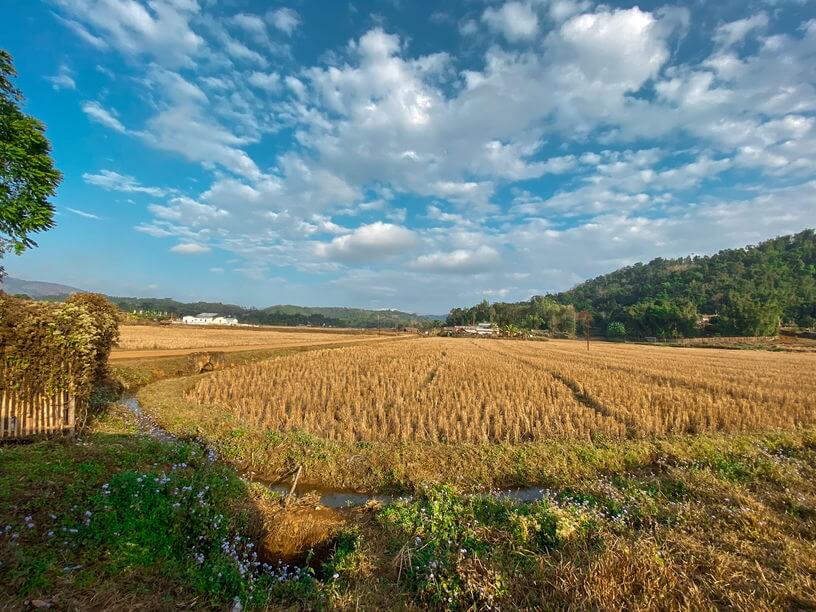
Umswai Valley sits remotely on the Karbi – Meghalaya plateau surrounded by the magnificent hills and consists of cluster of villages, majorly inhabited by the Hill Tiwa Tribes. The diversity in culture and warm hospitality is spread across the cluster of villages perched in various pockets of the valley. Through ecotourism efforts by Root Bridge Foundation, the households are trained to host visitors and give a complete rural experience and boost their livelihood. There are many treks, folklore, ethnic cuisines and religious places within the vicinity of the villages. The omnipresence of bamboo, traditional looms, unique way of storing grains, religious beliefs and the remarkable natural beauty of Umswai Valley is turning the valley into a progressive ecotourism rural destination.
PIN THE POST TO READ LATER
Also read about Bodoland and Bodo culture – Click Here
Learning about Culture & Traditions of Hill Tiwa Tribes
The hill Tiwa Tribes majorly dominate the Umswai Valley and its surrounding villages. The traditions, culture and beliefs of the tribe is intriguing and interesting. They are also known as Lalungs according to the colonial history. They are divided into Hill and Plain Tiwa Tribes, but both have culture and beliefs diversified from each. Our visit to the villages of Bormarjong, Amsai Pinung and Shikdamakha gave us a little insight about their routine, culture and nuances of their lifestyle.
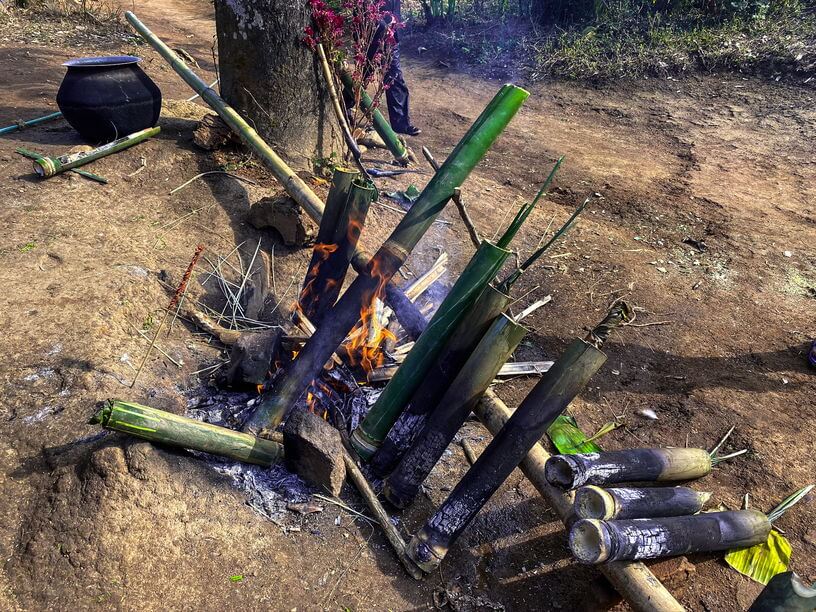
Ethnic Cuisines and Traditional Cooking Style
A tribe and their ethnicity is incomplete without a glimpse and taste from their plate of food. The assortment of tribal food organically procured from their farms and cooked in traditional way erupted mouth-watering flavors. The meat and rice is slow cooked inside bamboo tubes infusing a unique smoky flavor. Rice, dishes mixed with dry fish and meat are part of their staple traditional diet.
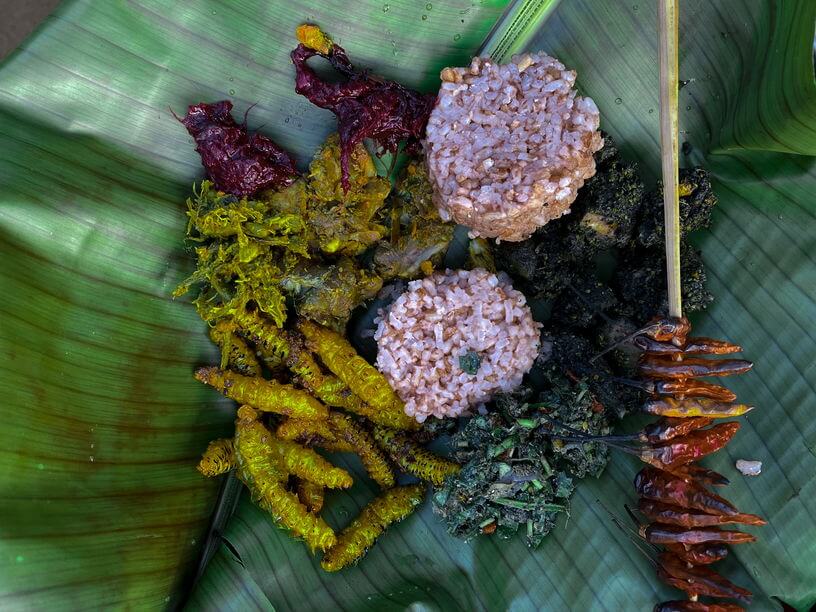
The fermented fish mixed with leafy vegetables is consumed frequently with meals. Silkworm rearing is a part of almost every household and is an ethnic delicacy. Traditionally drinks or tea is served in bamboo utensil. We were treated with a delectable tribal lunch freshly prepared with native ingredients at one of the homes in Bormarjong village.
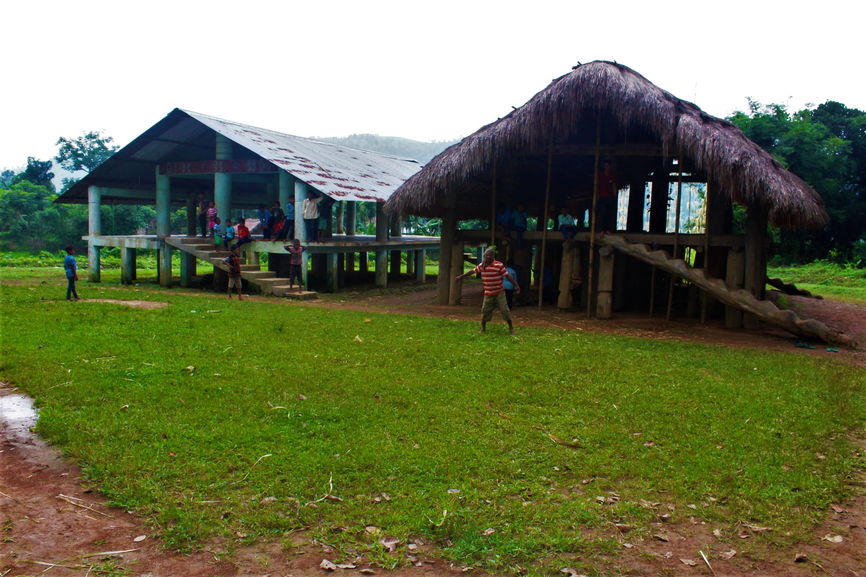
Beliefs, Religion and Deity Worship
There are tons of stories that has shaped the religious proximity of Hill Tiwa Tribes towards worship of deity and ancestral spirits. The plain Tiwas are known to embrace Vaishnavism, a segment that transcended from Hinduism and are adherent worshippers of Lord Vishnu. However, the religious practices and offerings by Hill Tiwa Tribe are quite contrasting from Plain Tiwa.
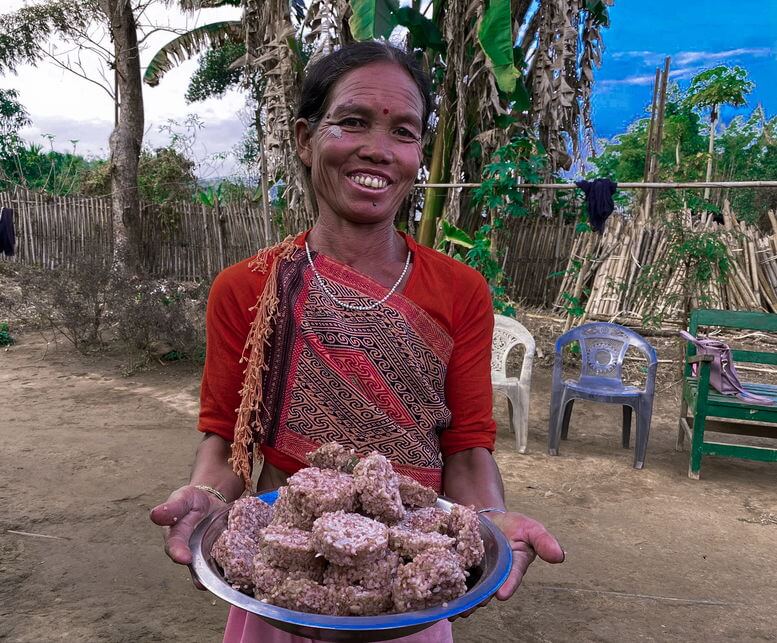
The Hill Tribes consider Mahadeo as their supreme power, referred as Botolmaji in local dialect. The Tiwas revere and worship their ancestral spirits in an annual ceremony and believe them to be their guiding light in bestowing village prosperity and harmony. Various offerings are made to the deity in their annual festivals which includes sacrifice of poultry and pigs. Earlier, even human sacrifices were known to happen. However, gradually many Tiwa Tribes are embracing Christianity over time.

Traditional Male Tiwa costume 
Traditional Female Tiwa costume
Traditional Costume of Tiwa Tribe in Umswai Valley
The ethnic costume of Hill Tiwa Tribe is a myriad of color blast scrupulously handcrafted on their traditional looms. The women in the villages endure excellent weaving craftsmanship and bring out minute floral art on their costumes. The women beautifully drape around their upper body a handwoven piece of clothing called Phaskai and team it up with a lower body drape called Kashong. The waist area is covered with a small piece of cloth called Nara. The traditional costume of men includes Thenash, worn crisscrossed across the upper body and topped by a traditional jacket called Thangla. The lower body is covered with a small piece of cloth called Nara.
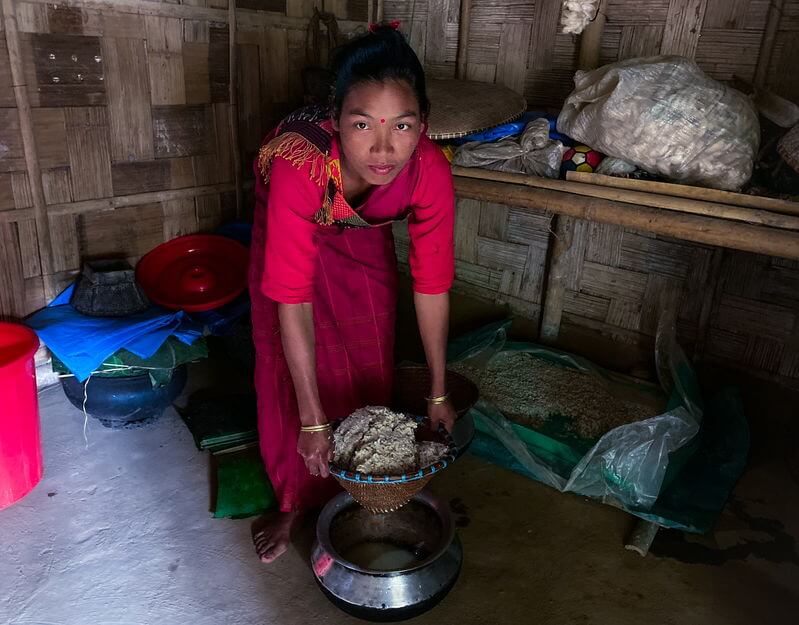
Brewing Rice Beer as part of cultural tradition
The production of rice beer and wine through traditional fermentation is a cultural amalgamation intertwined through years of practice. The unique process of beer production and its consumption in multiple occasions is a culture rendition followed since time immemorial. The beer making process is interesting where the boiled rice is mixed with pieces of yeast and kept for 3 days to dry. After this it is boiled and the vapor from the fermented rice is cooled to liquid and collected which is consumed as local beer.
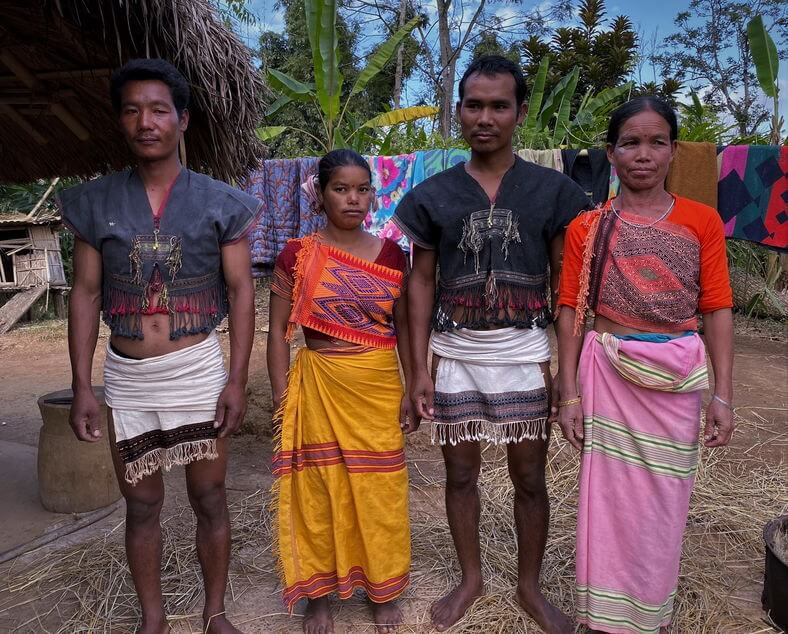
Co-existence of Ambilineal Community
The hill Tiwa Tribes have an ambilineal descent with both existence of both matrilocality and patrilineal society. Many families continue to practice matrilineal custom where the husband moves out of his parents’ home and stay at his wife’s after marriage. With the ambilineal descent, the children can inherit either the clan from either their maternal or paternal side. This is a culture that is slowly starting to diverge with patriarchal lineage coming into more prominence.
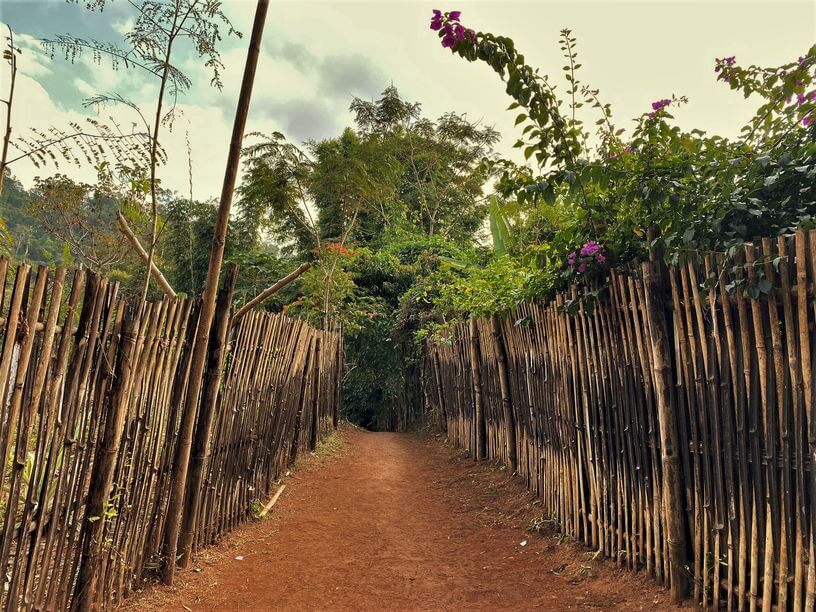
Chiming Bamboo Gates at Every Household
Each of the house in the villages of Umswai Village have a characteristic bamboo gate which chimes as they clutter against each other. Bamboo stem is hung vertically from the top adjacent to each other and every time a visitor enters the gate, the bamboo hit each other and make a sound, alerting the people at home of an incoming guest.

Unique way of storing the harvest 
The monoliths is part of Tiwa Ceremories
Folklores of Umswai Valley and the Tiwa Monoliths
There are many folklores tied around the village, transcending from generation to generation, passed on through their ancesters. The hill Tiwa Tribe worship and make offerings to their ancestral spirits in a ceremonial gathering and believe they bring prosperity, good health and better livelihood to the village. According to some folklores, Tiwa tribe are born from saliva of Mahadeo, their supreme creator.
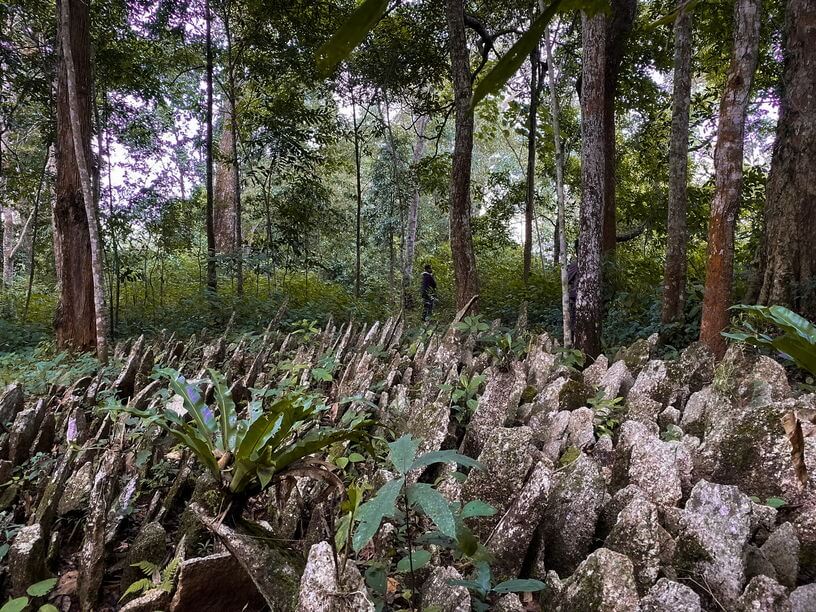
The erection of Monolith is an integral part of their ceremonial beliefs. There are around 2000 rock Monoliths erected across a decade atop a small hillock in Amswai Pinung in Umswai Valley as prayer and offering to the spirits of their ancestors. Every year one monolith is erected during the month of March in a ceremony called Phidri Chongkhang by village chief called Phador and Sangot. Each of the monolith consists of two slabs of stone – one as base and other erected vertically. The number of monoliths signify the number of times prayers and ceremonies have been done.
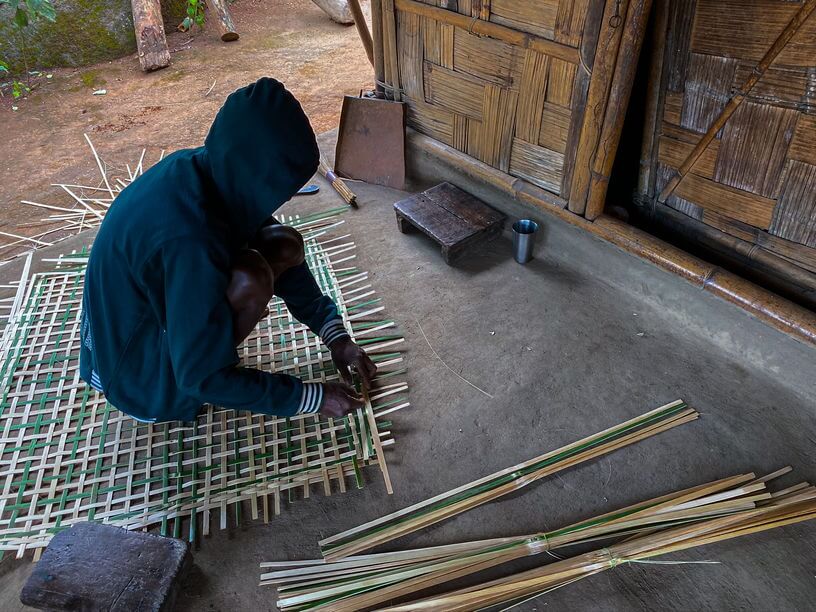
Livelihood of Villages in Umswai Valley
The livelihood of people in Umswai Valley is very limited and most of the household earn a meager amount of only Rs 100 – 150 each day. Being an agrarian community, majority of the livelihood comes from farm produce which includes ginger, potato, vegetable etc. cultivation. Some people in the village are also involved in producing hand looms, weaving bamboo handicrafts and broom manufacturing.
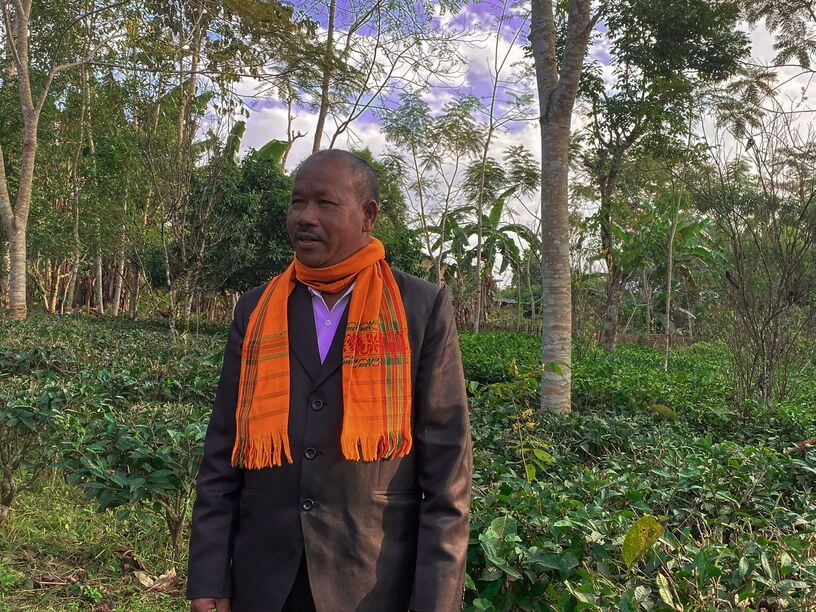
After meeting Mr. Tohen Lumphui, I learnt about his initiatives in organic green tea production. With help of some locals, he managed to start a small-scale tea farm in his backyard and is involved in production of hand rolled smoked green tea. The aroma and taste of the green tea freshly brewed from his farm is an aesthetic pleasure to the taste buds.
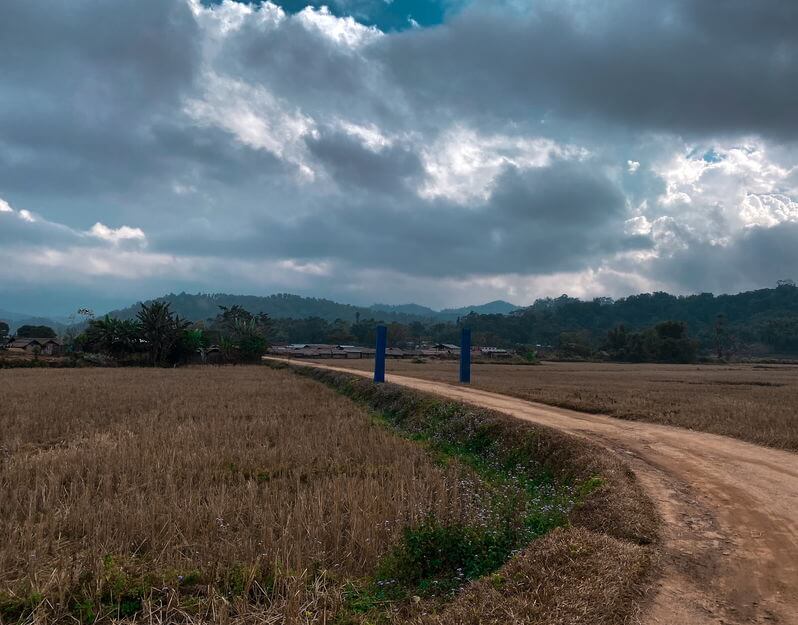
Shikdamakha Village – Story of Cleanest Village in Assam
Umswai Valley might soon turn into an epic rural destination in Assam with initiatives by Root Bridge Foundation. The eco-tourism is slowly spreading its roots in Shikdamakha Village – one of the cleanest villages in Assam, with homestay facility coming up for complete rural experience. This will help in creating livelihood for the local people by expanding their exposure to eco-tourism.
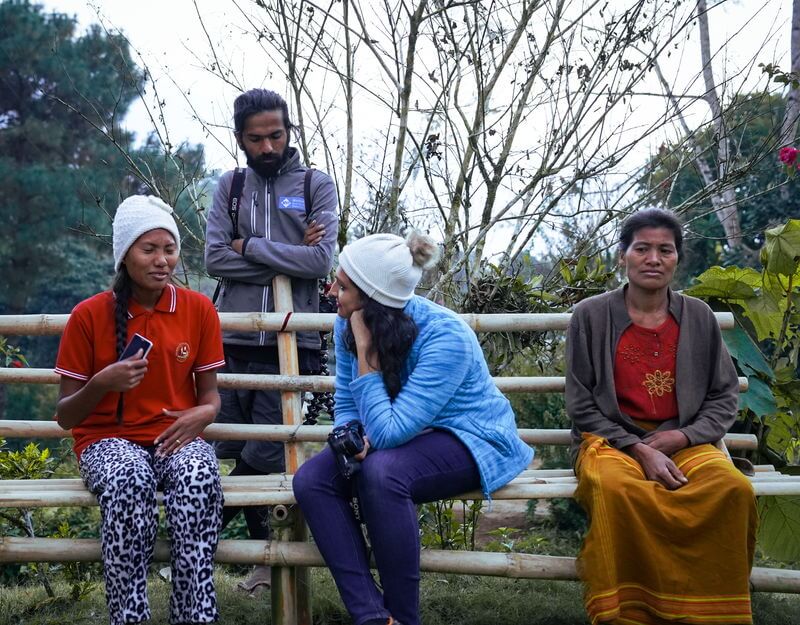
We met the homestay host and owner Priscilla and her daughter Joshila at Shikdamkha village who gave us insight about how cleanliness is an integral part of their routine life. The homestay is beautifully maintained with flowers on the porch and every effort is taken to ensure that tourists feel at home with their warm hospitality.
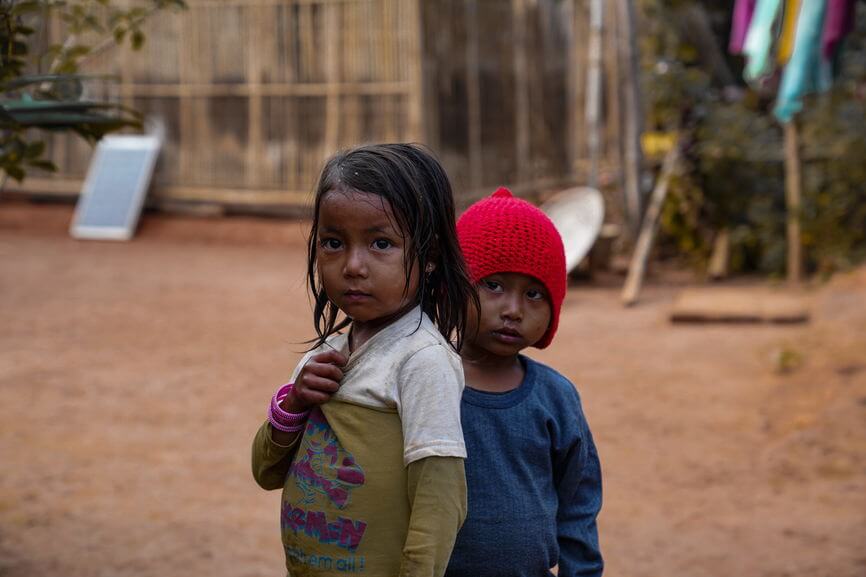
How to Reach Umswai Valley?
Umswai Valley is roughly 3-hour drive from Guwahati and due to the lack of proper local transportation, driving with own vehicle is highly recommended. The hilly roads that lead to the villages within Umswai Village are steep and rough and hence it is important to have some good driving experience. Alternately, one can also hire a private taxi for a day to visit the valley or contact Root Bridge foundation for arrangement.
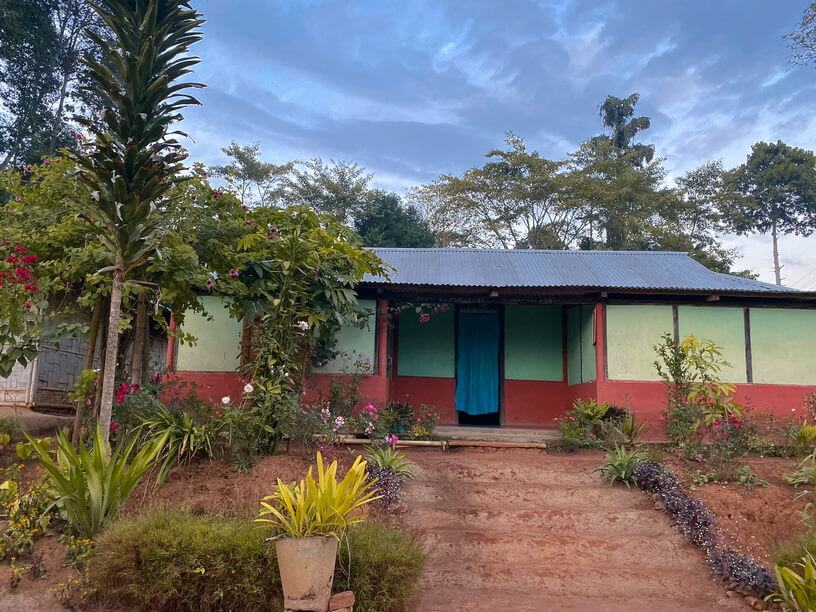
Accommodation options in Umswai Valley
The eco-tourism project is still at its nascent state and hence homestays are not yet functional. In a time, frame of few months to a year, the homestay option for accommodation will be available at Shikdamakha village. However, people are amicable, and you can opt to even pitch your tent at someone’s courtyard.
By end of 2020 the homestay hosted by Priscilla and her daughter Joshila should be ready as soon as construction of new toilets is over. Being a very remote village, the facilities would still remain basic but will give an immersive rural tourism experience.
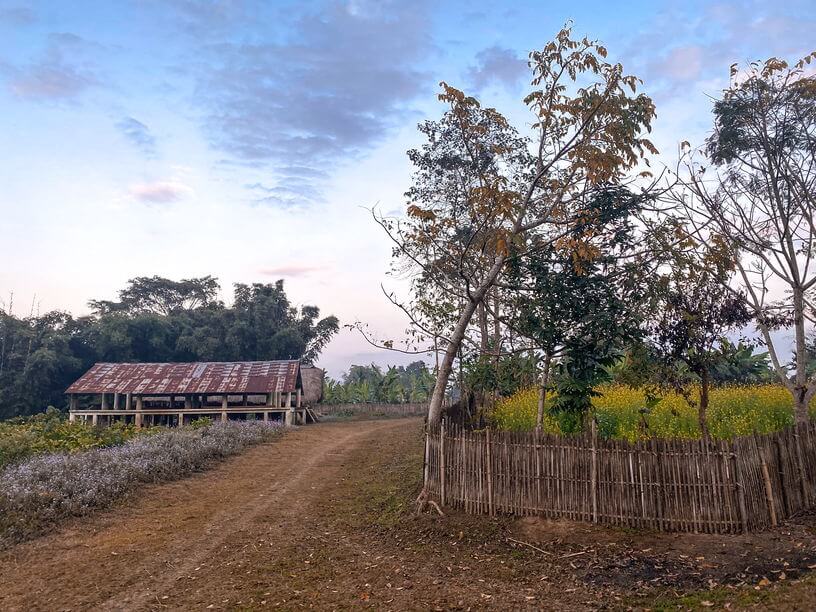
Final Words
Umswai Valley will own you with its virginal beauty and the remoteness of the place makes it exclusive. Be it the enchanting hills sitting faraway and guarding the valley or the indomitable spirit of the people to live life through inevitable hardship or the uncanny folklore, it is a promising destination to redefine eco-tourism. There are more than a dozen reasons to visit the valley and soak into the slow rural experience
PIN THE POST IF YOU ENJOYED READING THE POST
Disclaimer – I was invited on a media Trip as “Ambassadors of Bodoland” sponsored by Bodoland Tourism and Assam Tourism but all the views are mined.
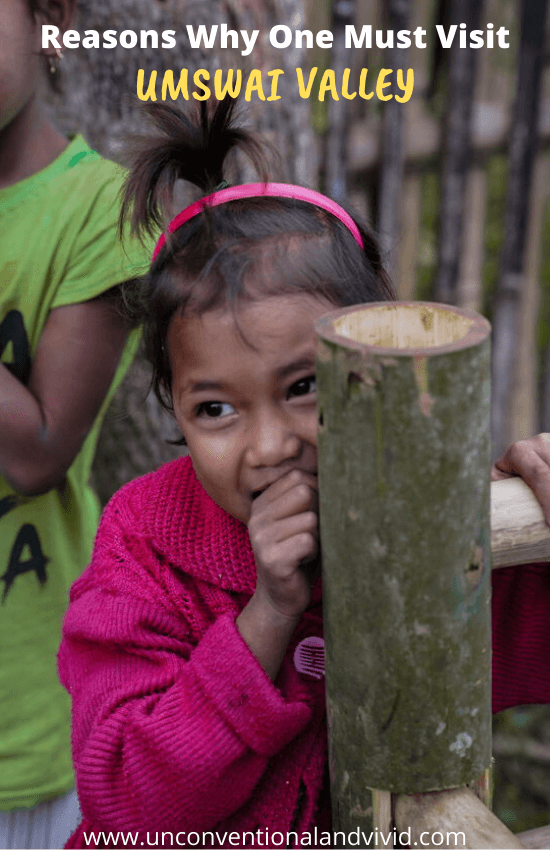
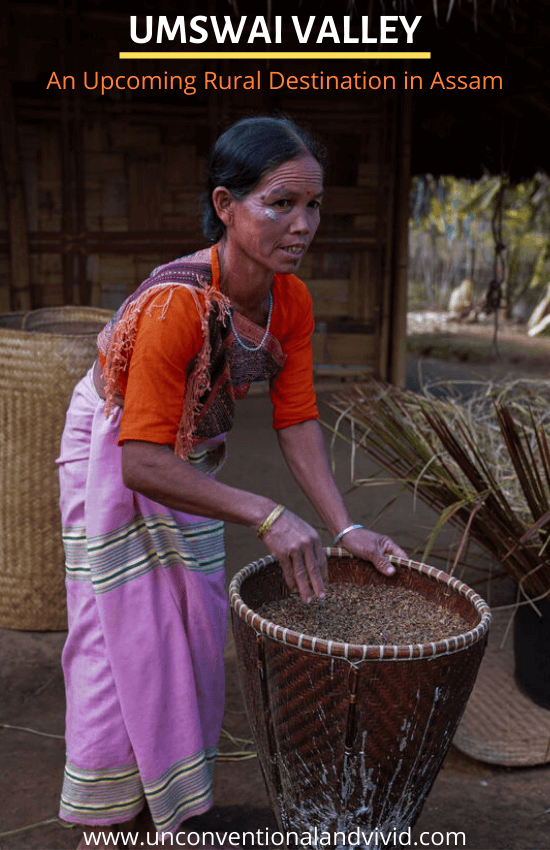
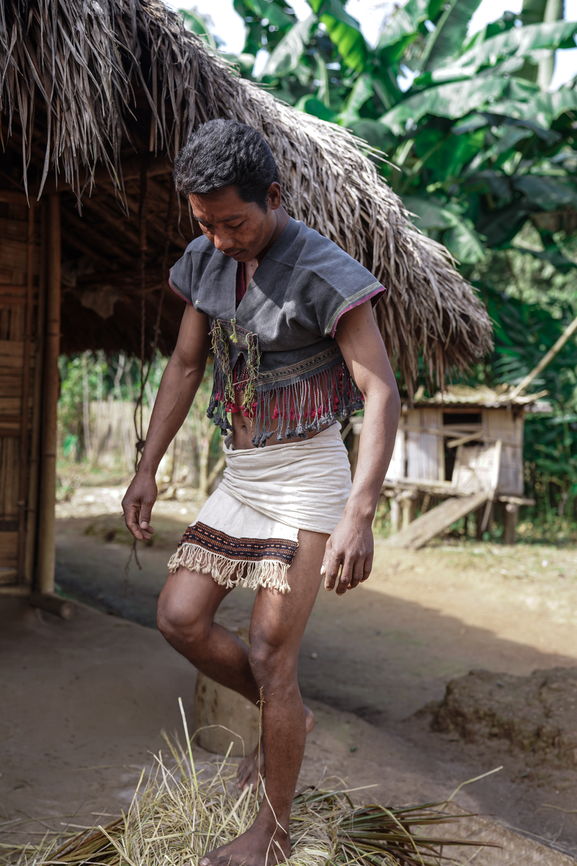
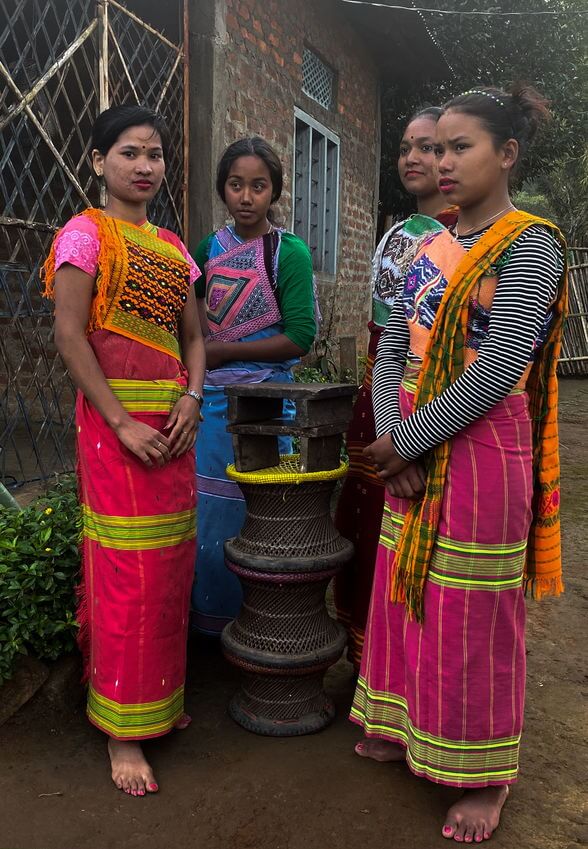
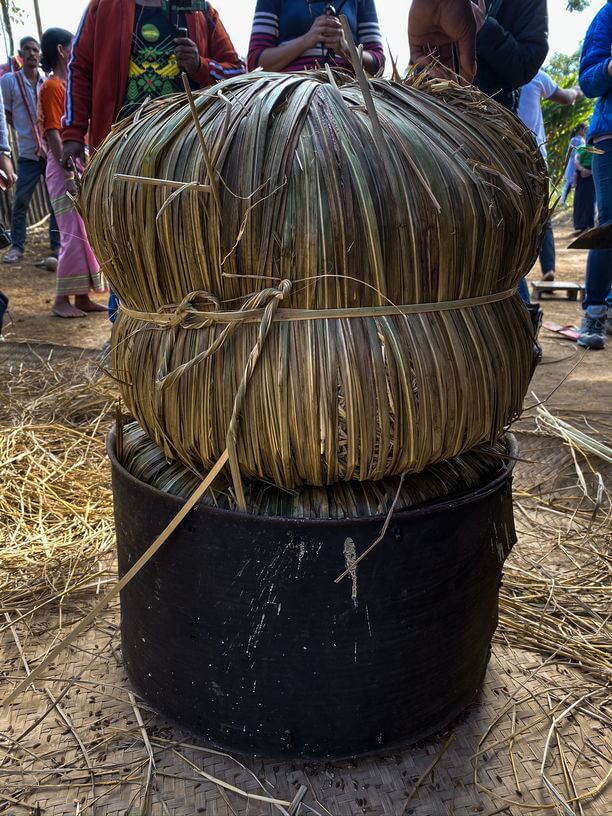
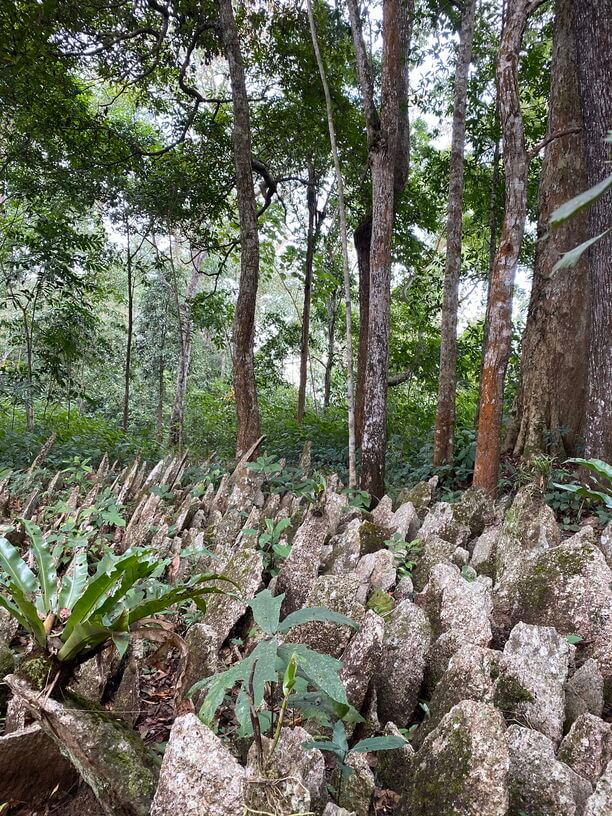
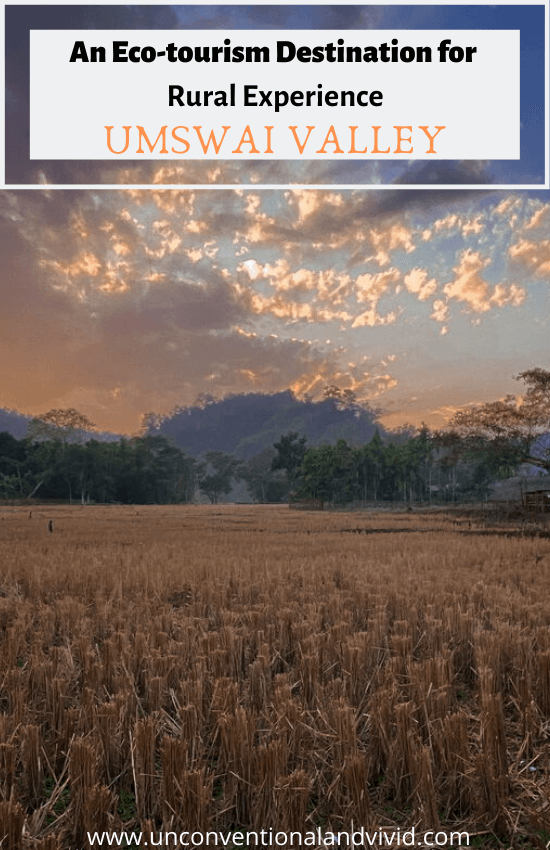
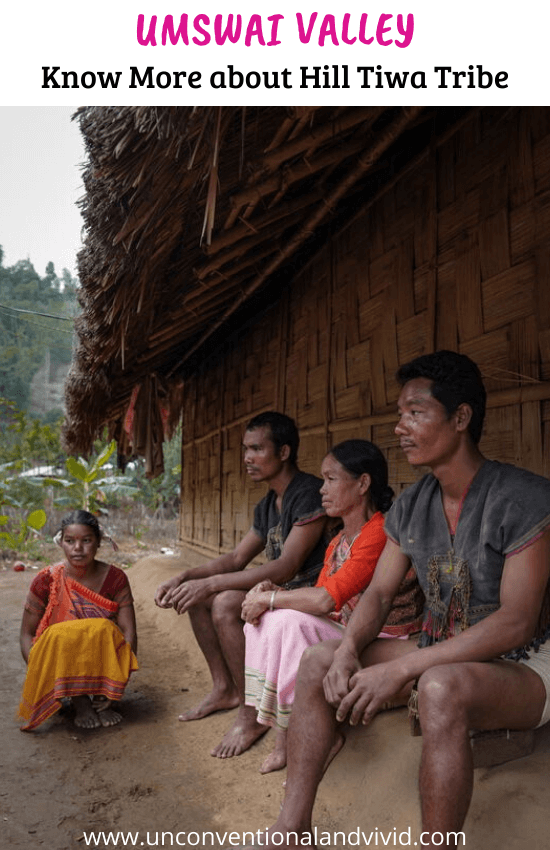

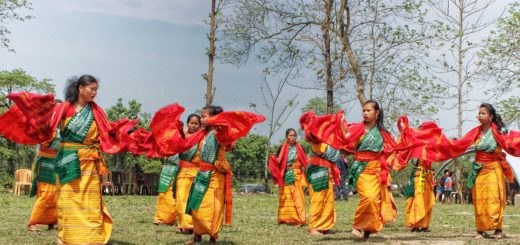
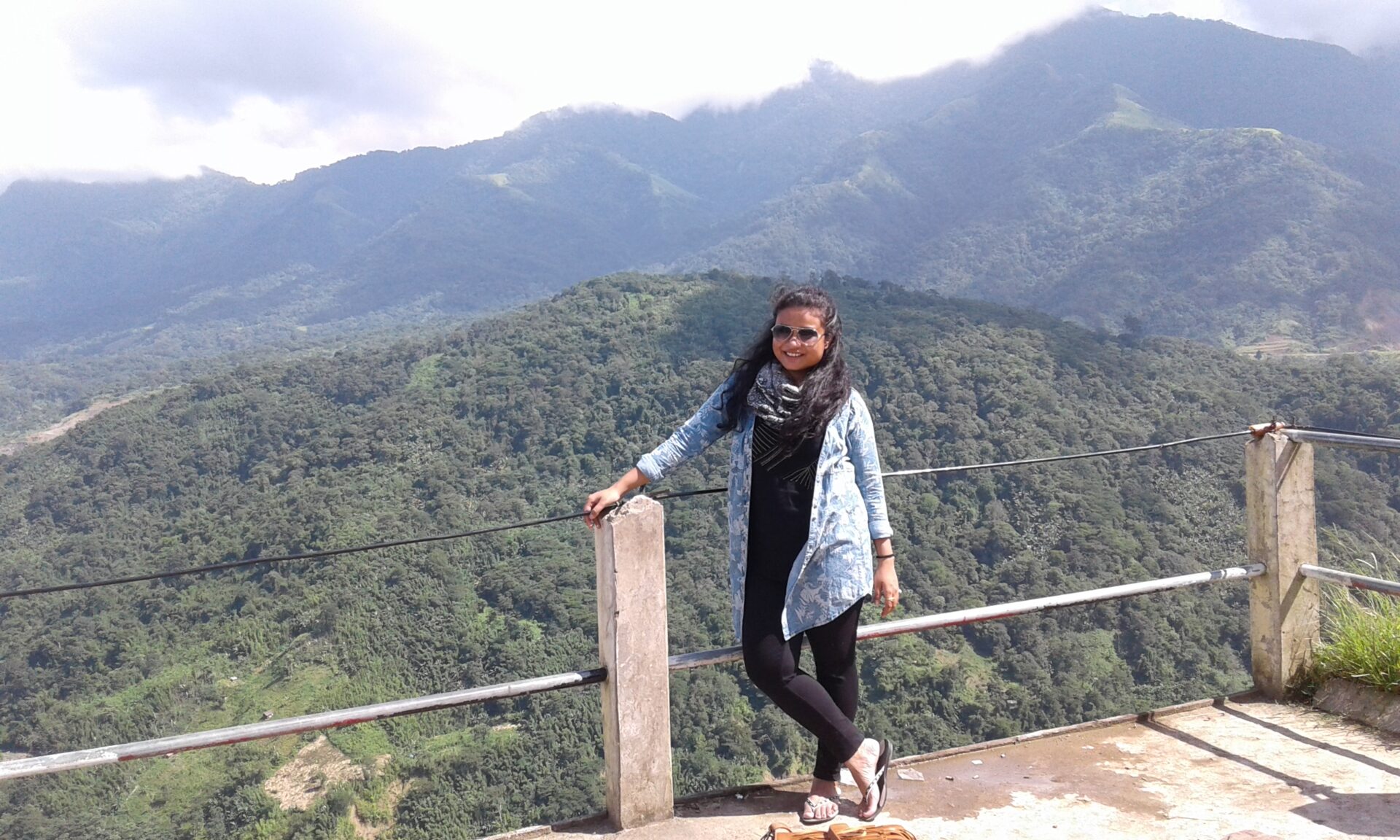
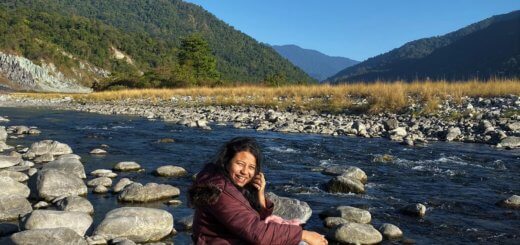

Experiences like this are so important and my favourite. Thanks so much for sharing this!
Thank you so much! I always dig for such experiences